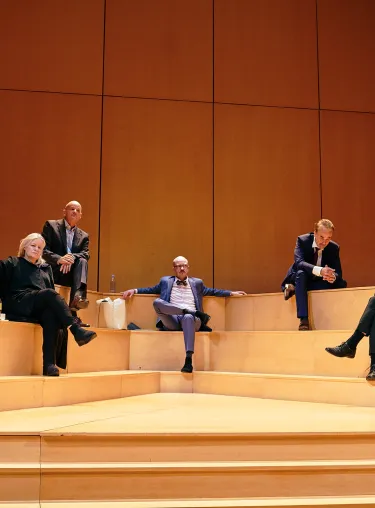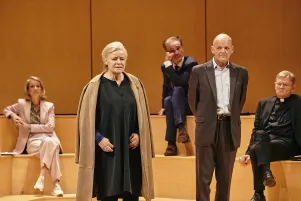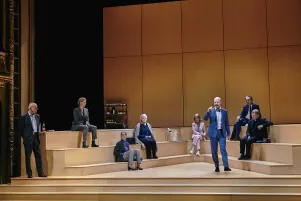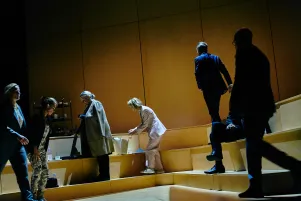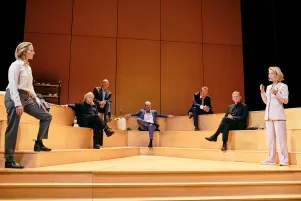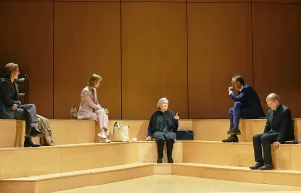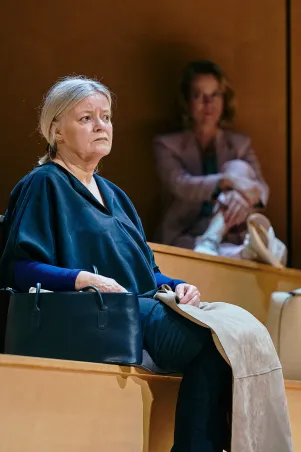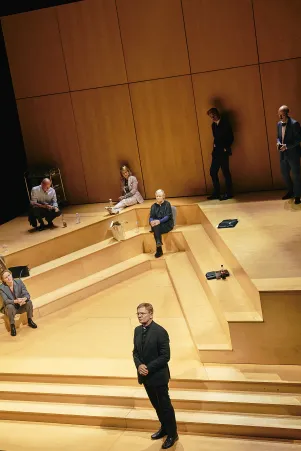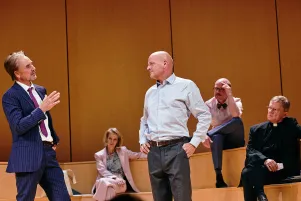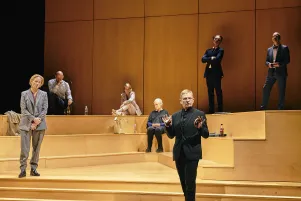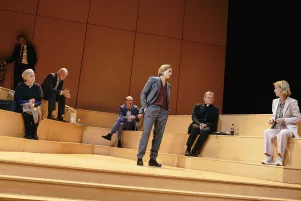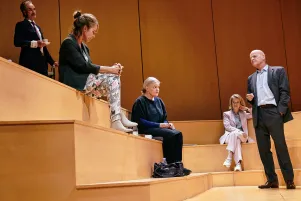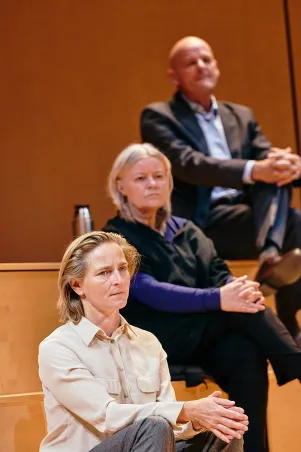Currently no performances
From April 2019 to February 2020, the German Federal Constitutional Court in Karlsruhe considered a long-simmering, unresolved debate: medically assisted suicide. For decades, it had not been subject to legal prosecution, but a legislative amendment in 2015 generated a legal situation that produced more ambiguity than clarity, criminalising doctors who were involved in physician-assisted suicide more than once. Now there is certainty: Paragraph 217 is unconstitutional, because: "The general right of personality includes the right to an autonomous death. This right includes the freedom to take one’s own life and to recur to voluntary assistance by third parties. The individual’s decision to end their own life as an expression of this right and according to their own understanding of quality of life and the meaningfulness of their own existence is to be respected by society and state as an act of autonomy and self-determination." (Quoted from the press release issued by the Federal Constitutional Court). The road to legalised suicide appears to be clear, but the debate about its ethics is far from over. How can we prove that someone’s wish to commit suicide is in fact autonomous and self-determined? Aren’t there still limits to credibility and provability, for instance when a mentally ill person expresses this wish? And can a society’s morals be so swiftly recoded that a healthy person’s decision to commit suicide can become acceptable? Set in a fictitious meeting of the German Ethics Council, Ferdinand von Schirach’s new play "Gott" initiates a dialogue between the legal, ethical and religious arguments of this debate.
Ferdinand von Schirach is both a jurist and an author. His successful play "Terror", first staged by Oliver Reese at Schauspiel Frankfurt in 2015, confronted its audiences with a basic moral conflict concerning a hijacked plane and finally made them decide the resolution of this conflict. The national German television corporation ARD produced a prominent TV-version of the material. With his new play "Gott", Ferdinand von Schirach once again addresses a fundamental debate of our times. Berliner Ensemble will create a contextual framework to the world premiere production by hosting a series of talks featuring experts in the field.
- Christine Schönfeld Brandt, Augenärztin
- Martin Rentzsch Biegler, Rechtsanwalt
- Bettina Hoppe Keller, Mitglied des Ethikrates
- Judith Engel Litten, Rechtssachverständige
- Ingo Hülsmann Sperling, medizinischer Sachverständiger
- Veit Schubert Thiel, theologischer Sachverständiger
- Gerrit Jansen Vorsitzender des Ethikrates
- Josefin Platt Elisabeth Gärtner
- Oliver Reese Direction
- Elina Schnizler Costume Design
- Hansjörg Hartung Stage Design
- Jörg Gollasch Sounddesign
- Simone Jandl Bratsche
- Ulrich Eh, Arnaud Poumarat Licht
- Tobias Kluge Dramaturgy
